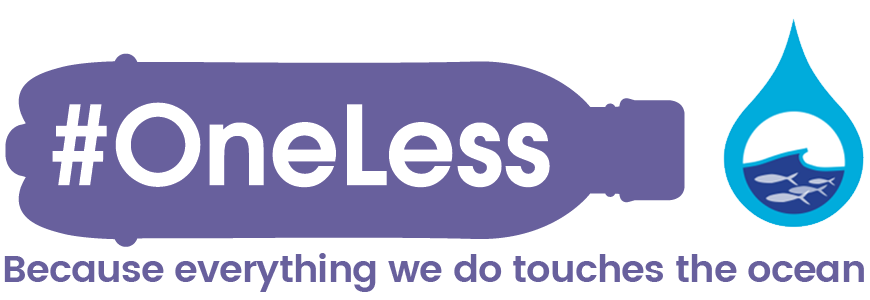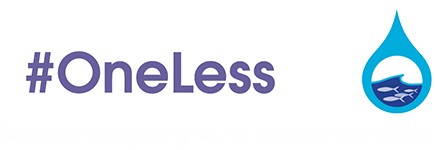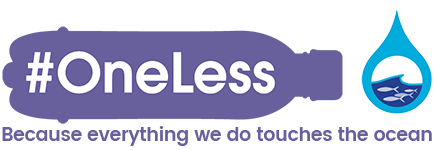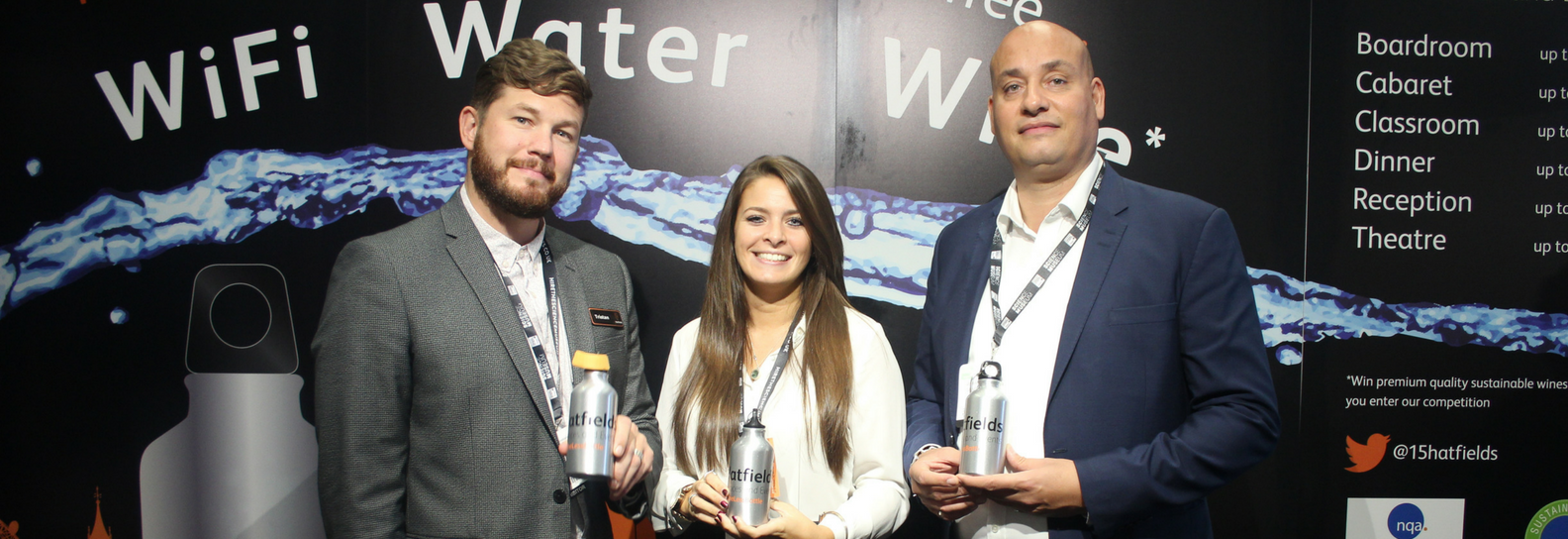The #OneLess team caught up with Warren Campbell, General Manager of the award winning sustainable venue 15Hatfields to find out what going #OneLess has meant for them.
Conference and events centre 15Hatfields has led the way as a sustainable London venue since 2008, when it banned the use or sale of single-use plastic bottles on its premises. So when it joined the #OneLess campaign two years ago, its sights were set higher than simply changing hydration habits within its own four walls.
“#OneLess provided us with the opportunity for a massive marketing campaign as we publicised that we are part of a movement to eradicate single-use plastic bottles in London,” says 15Hatfields General Manager Warren Campbell.
“It brought us together with like-minded organisations, so that together we could brainstorm ideas, work out solutions to problems and take things to the next level so that a refill culture becomes the norm.”
Campbell believes that many organisations can learn from the experience and successes of venues such as 15Hatfields, which have pioneered a #OneLess ethos. From the moment of its foundation, the venue, which is part of the Chartered Institute of Environmental Health, made a decision that single-use plastics would play no part in its budgets. It invested £2,000 in branded glass water bottles, leased mains water filtration and chilling dispensers – and the benefits were soon apparent.
“We estimate that in the ten years we’ve been going, we’ve saved around 2.5 million single use plastic water bottles going into landfill,” says Campbell. “We’ve calculated that we’d have paid £30,000 every year for plastic bottled water, compared to the £1,440 we’ve actually paid for the water dispensing system.”
There are even savings to be made on electricity. Plastic bottled water takes a long time to refrigerate because the plastic provides thermal insulation. But the water that comes out of dispensers is ready-chilled and when stored in glass bottles actually reduces fridge temperatures. Campbell estimates this has saved the venue around £2,000 a year in power costs.
“Being a sustainable venue is a really cost-effective option for us. We have 300 delegates a day coming through the site and our approach is very popular with them. It’s basically recession-proofed our business – more people used us as a venue because of our corporate social responsibility and to this day it’s a massive marketing point for us.”
What would his advice be to other venues and organisations wishing to go #OneLess?
“I think the whole #OneLess campaign is about taking small manageable steps – about educating your team and staff, and making short-term plans to trial things. For example, one option might be taking smaller bottles out of circulation first and keeping two litre bottles for the time being. You don’t have to change overnight: you just have to make a commitment to manageable plans and steps for your organisation.”
Making the shift, he says, sometimes simply requires thinking about budgets differently. If an organisation seems reliant on making revenues from selling single-use plastic water bottles, he suggests looking at new sources of revenue – such as putting branding or sponsorship on water fountains, or selling reusable bottles. “You can make other retail opportunities when you stop the use of single-use plastic water bottles.”
And sometimes it’s just necessary to think about budgets a bit differently: not always focussing on the revenues bottom line, but putting savings – in upfront costs, energy, recycling, production – in the spotlight.
What he’s appreciated most about joining the #OneLess movement has been the sense of pulling together a community passionate about a challenging but hugely worthwhile cause. The campaign workshops, held at ZSL last year, were particularly fulfilling.
“I think there were about 45 of us there, and we brainstormed what changes need to happen, and it was amazing. Just to sit down at a table with organisations such as Selfridges, Lord’s Cricket Ground, the London Mayor’s office, and the Thames Estuary Partnership. We looked at how we make this a norm across London, across the UK, the problems we face now and what infrastructure is needed to overcome them. The workshops were invaluable because we all fed into the process – and the outcome six to eight months later was the London Mayor’s Refill London campaign initiative.”
“Doing this with #OneLess has been an absolute pleasure because they’ve got everyone singing off the same hymn-sheet.”
“It’s been an amazing journey for us at 15Hatfields, and the challenge now is to have that small influence in everything we do, and every person we come into contact with.”







